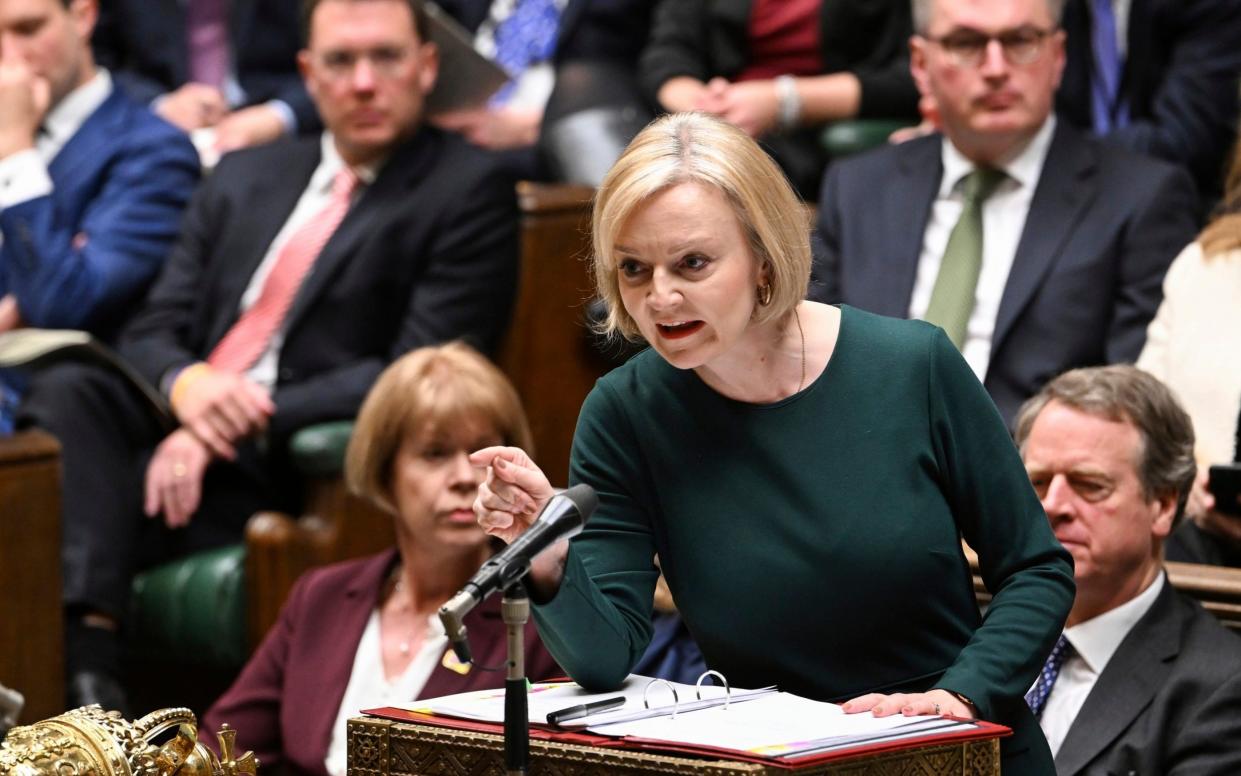Eight options Liz Truss can choose from to boost government savings

1. Watering down Corporation Tax cut
Scrapping Rishi Sunak’s plan for raising Corporation Tax from 19 to 25 per cent in April was one of the most expensive moves in the mini-Budget, meaning it is now in the spotlight.
Reversing the move would generate billions of pounds for the Treasury, but would be politically challenging given Liz Truss campaigned against a rise in her Tory leadership bid.
2. Reversing National Insurance cut
The other major costly item in the mini-Budget was reversing Boris Johnson’s decision to increase National Insurance by 1.25 per cent. Could an about-turn be coming there?
The early indication is not, given MPs voted to get rid of the rise only this week and it comes into effect later this year, meaning the parliamentary decision has already been taken.
3. Delaying the 1p basic income rate cut
One of the “rabbits” in the mini-Budget was the decision to bring forward Mr Sunak’s 1p cut to the basic income tax rate. It had been due in 2024 but will now happen next April.
It is in the crosshairs for some because it was an unexpected extra in a package that was followed by market jitters. But only by abolishing the move entirely would major savings be made.
4. Real terms spending cuts in the medium term
The Treasury has committed to Mr Sunak’s three-year spending package for departments and insists it will still amount to a real terms increase despite being eroded by inflation.
But the Chancellor is yet to set spending levels for after that period. Could he announce real terms spending cuts in the latter years of the five-year plan expected? Possibly.
5. Slashing foreign aid spending
As The Telegraph revealed on Saturday, this is an area which government officials are eyeing up - specifically when to hit the 0.7 per cent GDP foreign aid spending pledged.
Mr Sunak had promised to return to that level when debt was falling in 2024. Now that could be delayed, possibly to 2027. Each year it is pushed back saves up to £5 billion.
6. Make pensions triple lock a double lock
A long-standing Tory promise since David Cameron’s premiership has been the pensions “triple lock” - allowing state pensions to rise by the highest of 2.5 per cent, average earnings or inflation.
Dropping down to a double lock by removing inflation would match the approach being considered for benefits. But Cabinet ministers pledged the triple lock will stay just last week, making a change unlikely.
7. Ditch costly infrastructure projects
If you want to protect day-to-day spending and keep costly tax cuts, another option to find the savings needed to get debt falling is cutting back long-term infrastructure projects.
Perhaps scaling back Highspeed Rail Two? Or slowing nuclear power plant construction? The problem is Ms Truss has talked up the urgent need to act faster here to boost growth.
8. Changing the retirement age
The retirement age is due to rise from 66 to 67 for men and women at some point between 2026 and 2028. Could that move be brought forward, extending the working lives of millions?
Mel Stride, the Tory chairman of the Treasury Select Committee, floated the idea on Wednesday. The response from one economist was that a rapid change could be seen as unfair to those impacted.

 Yahoo News
Yahoo News 
